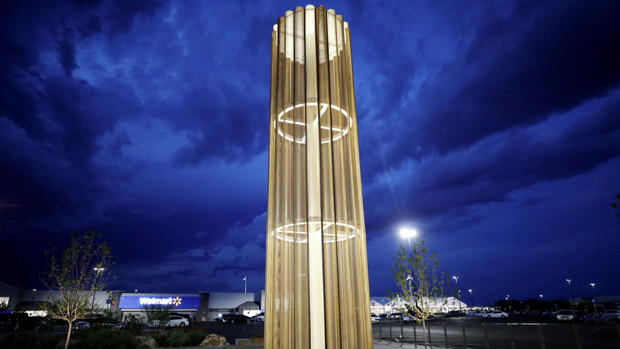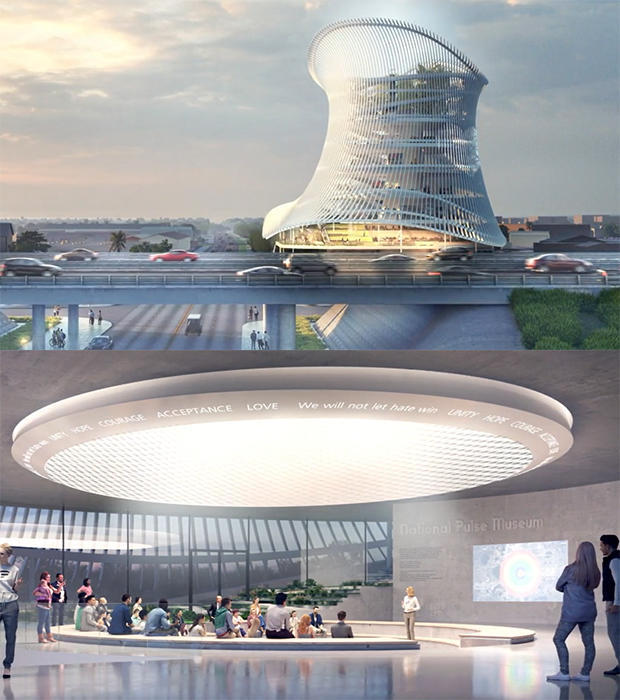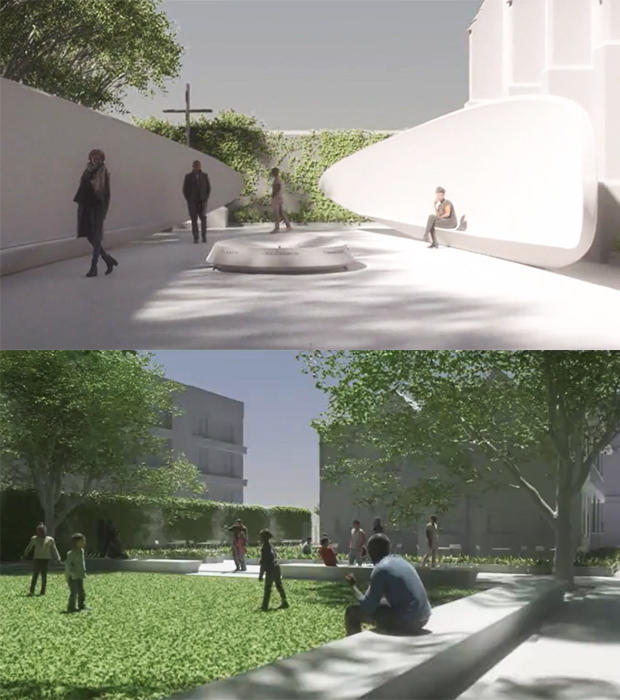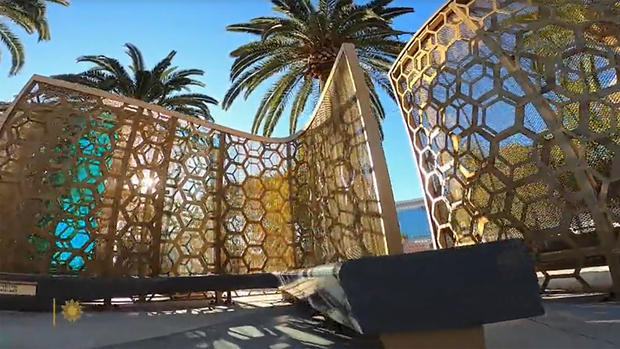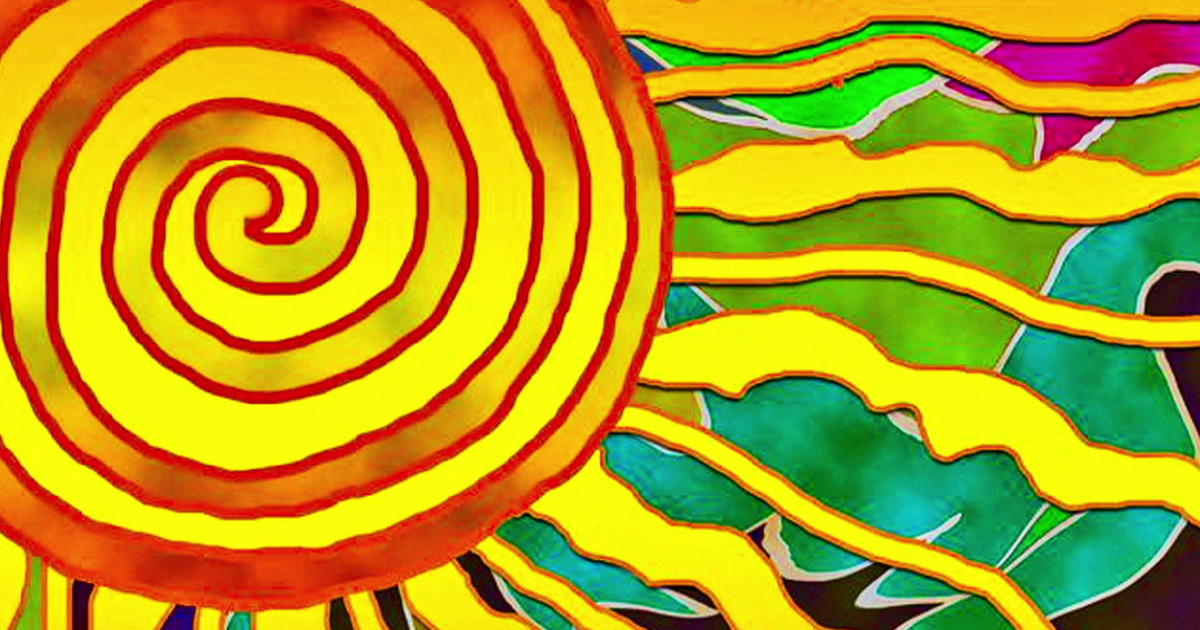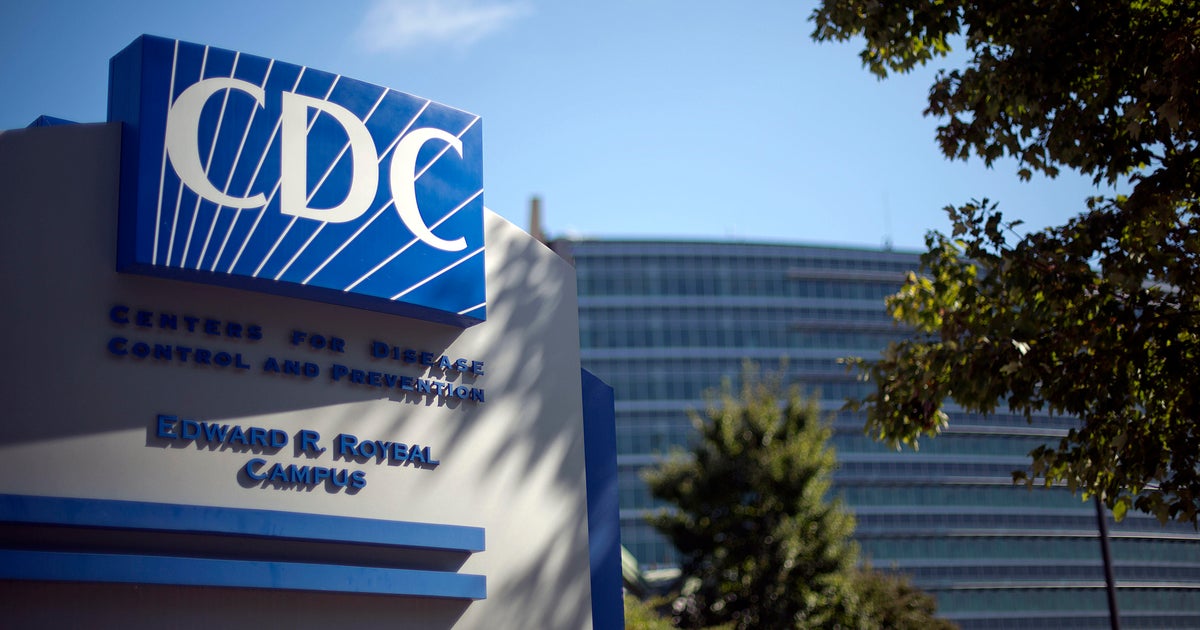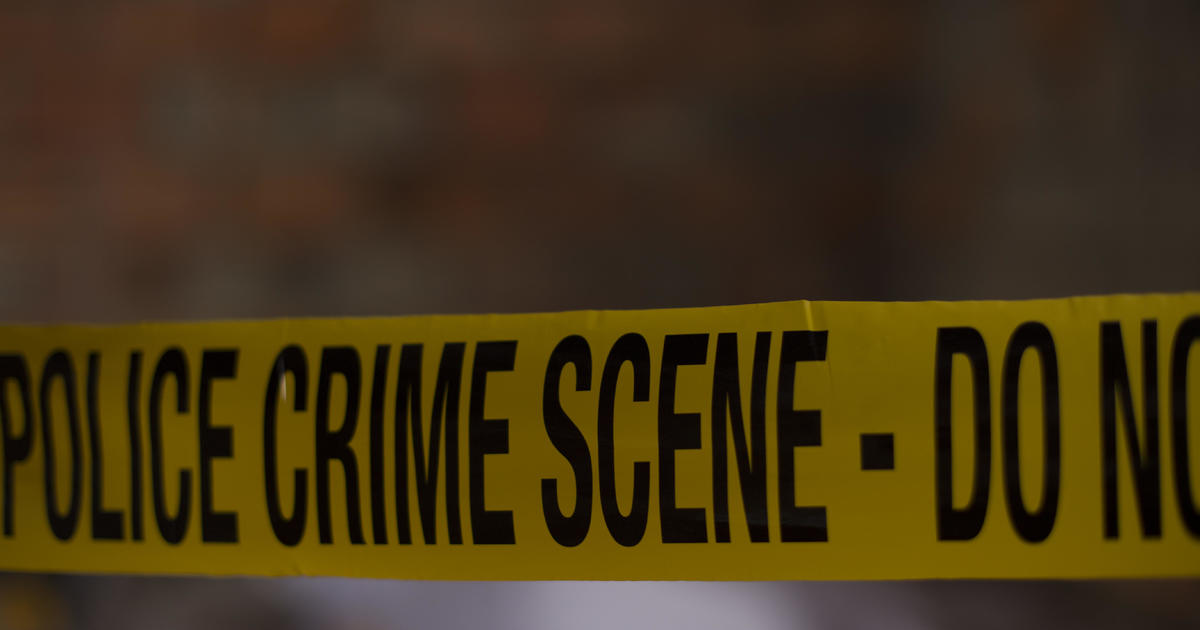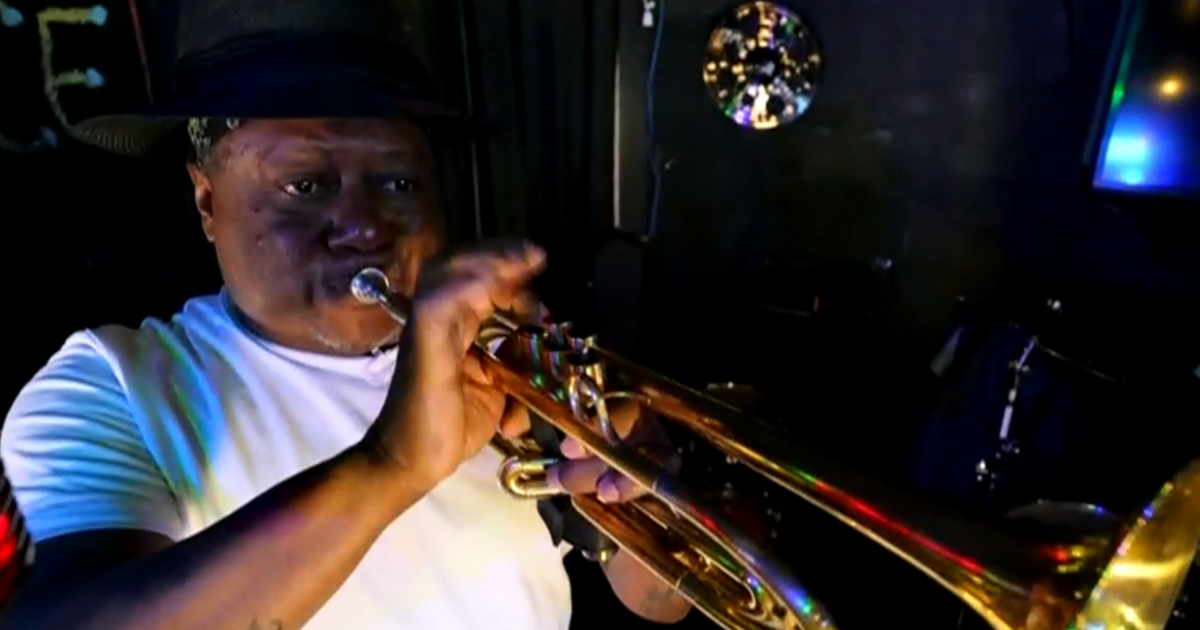Memorializing mass shootings
It's all so sickeningly repetitive. Another shooting at a gay nightclub: five dead, at least 18 wounded in Colorado Springs. Three days later, another shooting at a Walmart: seven dead, including the gunman. In Chesapeake, Virginia, mass shooting #607 this year in the United States, according to the Gun Violence Archive. But believe it or not, there were at least eight others last week, in West Palm Beach, Fla., Temple Hills, Md., Philadelphia, Houston, Dallas, Hennessey, Okla., Chicago, and Costa Mesa, Calif.
And when the vigils have stopped, and the makeshift shrines are bedraggled, what then? How does the story of what happened get told, and who gets to tell it?
In El Paso, Texas, a pillar of light with 22 beams shines out from the parking lot of that other Walmart, where 22 people were gunned down on August 3, 2019. Walmart moved fast. The Grand Candela, as it's called, went up in 3 1/2 months, and was dedicated before a 23rd victim died.
Six years and counting after 49 people were killed at the Pulse nightclub in Orlando, Florida, on June 12, 2016, you can still see bullet holes in the LGBTQ bar's building which remains a temporary memorial. The fight over what a permanent memorial should look like makes clear just how messy and contentious memorializing mass shootings can be.
Deborah Bowie, executive director of the OnePulse Foundation, was hired recently after criticism of Barbara Poma, co-owner of the Pulse nightclub.
"Barbara is a powerful force in this community, and for some people a lightning rod," said Bowie.
Poma established the foundation. Its purpose: to raise the tens of millions of dollars needed to build her vision of an entire Pulse campus, incorporating the club, a memorial, and a separate museum several blocks away. The foundation now calls Poma "the keeper of the story."
Christine Leinonen's son, Christopher, and his boyfriend, Juan Ramon Guerrero, died in the Pulse shooting. Leinonen told correspondent Martha Teichner, "We want control over the Pulse name, the Pulse physical location, the building, so that we can control our own tragedy. We own [it]. It's our tragedy. It's not Barbara Poma's tragedy.
"It's painful. It never ends. Christopher was the light of my life, and the light's gone."
Leinonen is one of dozens of survivors and victims' family members who have sued club owners Poma and her husband, claiming they were negligent at the site and contributed to the loss of life, a claim they deny. Leinonen considers the museum exploitation, and wants it stopped.
Teichner asked, "Twenty years from now, 30 years from now, people aren't going to remember the shooting. Is there a need to tell the story of what happened?"
"Well, maybe if you could trust the storytellers," Leinonen said. "There is no trust."
Deborah Bowie said, "The museum is not to monetize or exploit tragedy. The museum will be part of the entire Pulse experience. We engage with the families frequently. The family members tell the story."
And what is that story? Bowie said, "There are six words that came out of the initial survey that have become part of our vision, our value statement, and they are: love, hope, unity, acceptance, courage, and strength."
"Forgiveness" was the word that loved ones of the Charleston Nine chose after a White supremacist opened fire during an evening prayer service at Mother Emanuel AME Church in 2015. The watching world was amazed at the response.
Teichner asked The Reverend Eric Manning, "How important was forgiveness in creating the type of memorial that you've chosen to have?"
"It was very important," he replied. "Some people have the thought process to say, 'Oh, because they forgave so quickly, it was easy for them.' No. Oh, no, definitely not. It still causes pain to this day."
Rev. Manning's predecessor as senior pastor, The Rev. Clementa Pinckney, was killed in the shooting.
Seven years later, the $20 million memorial Mother Emanuel is planning will be about remembering the dead on one side of the church – and celebrating the survivors on the other.
"There is no righteous indignation; there is no anger," said Rev. Manning.
But should there be? Memorials to mass shootings have become the expensive public art versions of condolence cards for a society in pain. Most omit any imagery suggesting that heinous acts of gun violence are the reason they exist.
Landscape architect Walter Hood said, "When you see the calls for the competitions, like, there's a new one that just came out, and we talked about this in our studio, we're not going to go after it. I am more interested in the articulation of the real issue for these, which is the violence."
And yet, it was to bring comfort to grieving families that Hood designed San Bernardino, California's graceful, undulating Curtain of Courage – 14 personalized alcoves for the 14 people killed by terrorists there in 2015. Among the dead: Damian Meins.
But for mother and daughter Treena and Tina Meins, building memorial after memorial is not enough. "Does it help with the healing process? I think it helps to remember," Treena said.
But, Tina said, "It doesn't help in the sense that there are still shootings after shootings after shootings."
Trenna said, "I think these memorials should memorialize the people that lost their lives. I think it should also, at the same time, be a call to action – a reminder that this could happen anywhere to anyone, and it shouldn't have to. It shouldn't have to, and it doesn't have to. It doesn't have to."
For more info:
- Grand Candela, El Paso (SWA Group)
- OnePulse Foundation
- Community Coalition Against a Pulse Museum
- Mother Emanuel AME Church, Charleston, S.C.
- Emanuel Nine Memorial Foundation
- Landscape architect Walter Hood
- Curtain of Courage Memorial, San Bernardino, Calif. (Hood Studio)
- Curtain of Courage Memorial (San Bernardino County)
Story produced by Dustin Stephens. Editor: Mike Levine.
